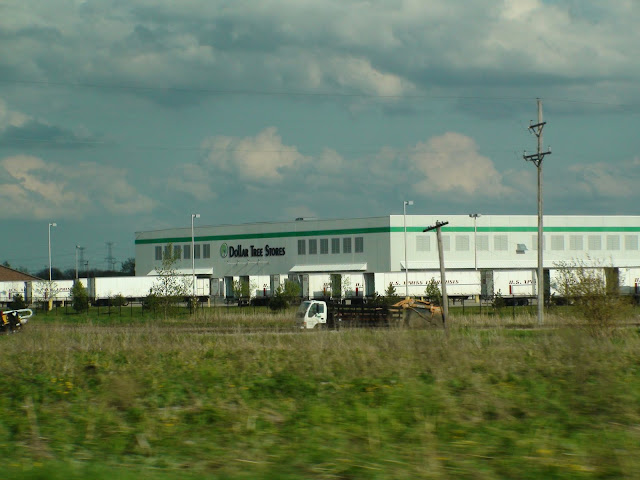Warehouse Workers for Justice Surveys Will County Warehouse Workers
In recent years, many warehouses have been built in Will County, such as:
The Bissell Warehouse in Elwood, Illinois.
New warehouses along Laraway Road in Joliet.
The Dollar Tree Warehouse in Joliet.
Warehouses in the CenterPoint Intermodal in Elwood, Illinois
CenterPoint Joliet and the Dollar Tree Warehouse in Joliet
Speaking recently after a meeting of the Interfaith Action Committee, the members said that after a Martin Luther King event last year, the faith community was drawn “into the struggle for warehouse justice.”
It will take a broad base of warehouse workers to make the changes happen, the members said. “The only way to push back is with a broad based organization.”
Another goal will be to move away from a temporary work force staffed by agencies to a mix of temporary and a high percentage of permanent employees, Stephen Jackson said.
Underway now is a survey designed to provide a better sense of the hard numbers, WWJ coordinator Abraham Mwaura said. It’s hoped that the survey and the public hearing will be a “launching pad for policy change,” he said.
Members said the existing Illinois Day Labor and Temporary Services Act
provides protections that aren’t being enforced “We believe it’s violated all the time,” Jackson said.
provides protections that aren’t being enforced “We believe it’s violated all the time,” Jackson said.
When workers are called in and then wait for hours in a cafeteria before eventually being sent home without pay, it’s a violation of the law, they said. Yet, they receive reports that “It’s broken on a regular basis.”
Other types of violations reported to the committee include:
· ~Workers being discouraged from reporting health and safety violations,
· ~ Agencies not classifying workers into dangerous categories to avoid
paying full workers compensation costs
~Splitting hours and paying employees separately for hours worked in each
department to avoid fulltime weeks
·
Jobs that pay less than a living wage put a burden on the local economy, too, they said. Seeing warehouse workers in line at the food pantry brought the issue close to home for one pastor. It illustrates “how close these issues are to the churches, “ Abraham Mwaura, coordiantror WWJ said. “They need and deserve a living wage.”
When the survey of workers is completed, a report will be released at a public hearing, Mwaura said.
It’s hoped the results will lead to a policy of enforcing existing labor laws and a movement to provide a living wage for workers.
Anyone wanting additional information about WWJ may visit the website at www.warehouseworker.org or call the hotline at 1-888-DIGNIDAD.
Warehouse Workers for Justice Interfaith Action Committee met recently at Sacred Heart Church in Joliet. They include, from right and clockwise: Eveleyna Washington, Coalition of Black Trade Unionists; Charlotte Droogan, Universalists Unitarian Church of Joliet; Rev. Craig Purchase, Mt. Zion Full Gospel Tabernacle and president of the Joliet chapter of the Rainbow Push Coalition; Abraham Mwaura, coordinator WWJ; Stephen Jackson, for the Diocese of Joliet; and Cindy Marble, a former warehouse worker.


